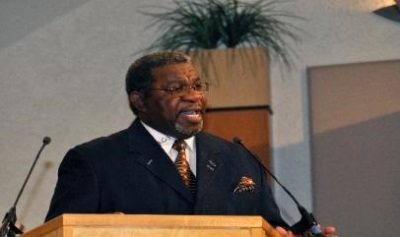Oregon pastor: Martin Luther King Jr. 'galvanized us in a way only a hero could'

PORTLAND, Oregon (Christian Examiner) – Robert Jointer was 8 in the fall of 1959. He remembers his pastor/uncle coming over early one Sunday morning to their rural Mississippi home to get his father, and he wasn't wearing church clothes.
When his dad returned some time later, young Robert hung near enough to hear the conversation and his mom's sobs. William, a neighbor, had been lynched by the KKK. Why? Blacks were not allowed in the town. William's wife was a maternity nurse; the overworked town's doctor had asked her to work at his office; townspeople didn't like it.
"Those were just the times we lived in," Jointer told Christian Examiner. "It was a matter of survival. Praise God many of us made it. Some didn't, like William."
Jointer now is founding pastor of Bethesda Baptist Church in Portland, Oregon, but his memories as a child in Mississippi are not far from his thoughts.
Crosses were burned in front of his parent's home and his uncle's home. Jointer speculates it was because both were active in the local chapter of the National Association for the Advancement of Colored People.
The building for the county's first Head Start program was burned to the ground because the students were Black. "They gave notice they were not going to be educating niggers," Jointer said. "They verbalized that to Head Start."
Then came national news coverage of the civil rights movement.
"We all felt he [Martin Luther King Jr.] was walking a dangerous road," Jointer said. "Many people would verbalize it to us: he was going to get killed.
"We'd seen him [on the family's black-and-white television] standing in Washington and giving his 'I have a dream' speech, and it was electrifying; it filled us with hope and fear for him," Jointer continued. "I grew up in the midst of people who treated me like less than human, and I could do nothing about it. But Martin gave us hope.
"It was like a bad dream when we heard he died. It was like a nightmare. It was sadness and filled us with hopelessness. If they killed Martin, there was no one to speak for us."
The school closed; people began assembling together in the gray gloom of their grief—so palpable it was almost a mist of hopelessness, Jointer said. But it didn't take long before mournful singing and prayers turned to shouts: "We will not let him die in vain!"
"The community came together," Jointer said. "It energized our community."
Change, however, came slowly. Dr. King died April 4, 1968. Jointer, then 17, had friends a year older, who joined the Army, fought in Vietnam. "When they came back, they still had to go to the back door of the restaurant to get a hamburger."
His uncle knew Dr. King and talked about "Martin," so that's the name he uses without thinking, but with great respect, Jointer said.
"Martin was right up there with all the guys who stood for good," Jointer said. "Like Superman who would come up and deliver the damsel in distress he did something heroic no one else could do.
"He couldn't take everybody's hand, but he pulled the Black community together in ways no one else could. Yes, we had Jackie Robinson and Jesse Owen, but Martin did something that galvanized us in a way only a hero could."